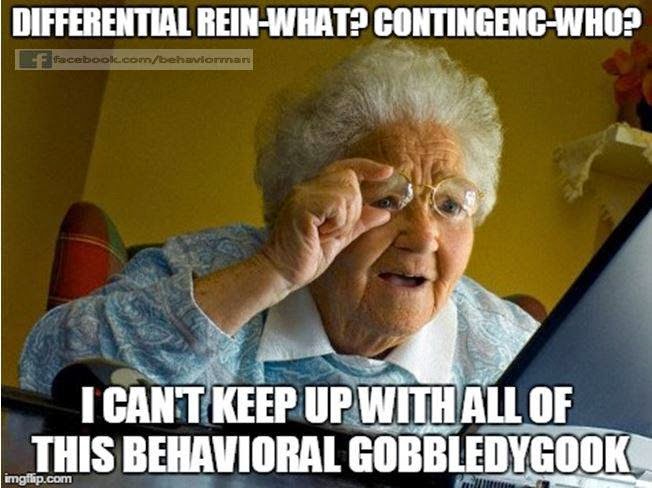I have not discussed how we transfer an observable behavior into a data point. When I first started working in ABA I was taken aback by the fact that a BCBA could come up with such a clear definition of a behavior that allowed us BT's to know exactly when to record data. I studied psychology in undergrad and my professors made behavior out to be this trait that only humans had where there was no explaining it. Behavior is something humans do therefore they are the far superior beings on this planet. Move over Freud's Theory of the Human Psyche- Skinner got behavior on lock down.
So how do you measure behavior?
There are three dimensional quantities of behavior
- Countability: behaviors that can be counted
- Temporal extent: how long a behavior lasts
- Temporal locus: when a behavior occurs
Depending on what your target behavior is you pick one of these three properties to measure. Next you pick your type of measurement.
There are two classes of measurements
- Continuous Measurement: records every instance of behavior (no alterations to the raw data).
- Discontinuous Measurement: records only a sample of the behavior
Finally you pick from the two classes the measure you will use to record your data:
Types of Continuous Measurement
- Rate: the number of responses in a given time
- Locus: when and where the behavior occurs
- Latency: elapsed time between onset of a specified stimulus and the onset of a response
- Duration: the total amount of a time a behavior occurs
- Inter-Response Time: elapse time between the end of a response and the onset of another
- Magnitude: the force of the behavior
- Topography: physical form of the behavior
Types of Discontinuous Measurement
- Percent Correct: the amount of responses correct divided by the total number of responses
- Trials to Criterion: number of trials it took to meet performance criterion
- Time Sampling: (partial, whole, and momentary) recording whether a behavior occurred during each trial or not
Confusing? Practical example time!!!
Direct
Rate: the number of times I say "dude" in one hour
Duration: the amount of time I spent binge watching Law and Order SVU on Netflix *dun dun*
Latency: how long did it take for me to answer your question about the Patriots game last week (the amount of time once you finished asking your question and me speaking).
Inter-Response Time: You ask me to list 50 colors (the amount of time between each color response- I am partial to mac and cheese yellow)
Magnitude: how hard I would punch someone in the arm for spoiling the next season of Game of Thrones.
Topography: how my happy dance looks (huge smile, arms extended towards the ceiling in alternating fist pump motion, legs are bending and stretching, and head is moving side to side).
Locus: my car while driving is where I sing my heart (Adele always wants me to sing back up in Lola the Corolla).
Indirect
Percent Correct: I got 95% correct on a Buzzfeed quiz about Harry Potter trivia (Hufflepuff for Life)
Trials-to-Criterion: It took my boyfriend 4 games of Mario Party to beat me at 1st prize (no one beats Luigi- no one).
Time Sampling: During an episode of Girls I rolled my eyes 26 out of the 30 1min intervals (too much hipster language for me).
So remember we are never under pressure- we are under measure!!!










